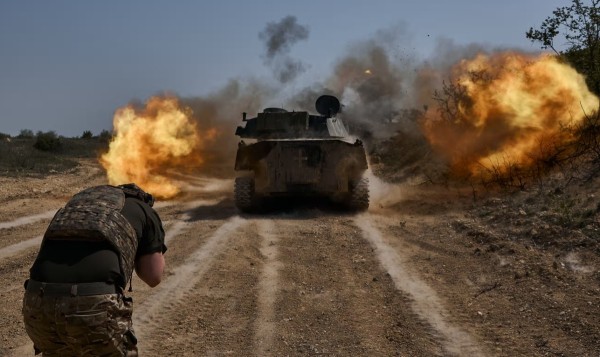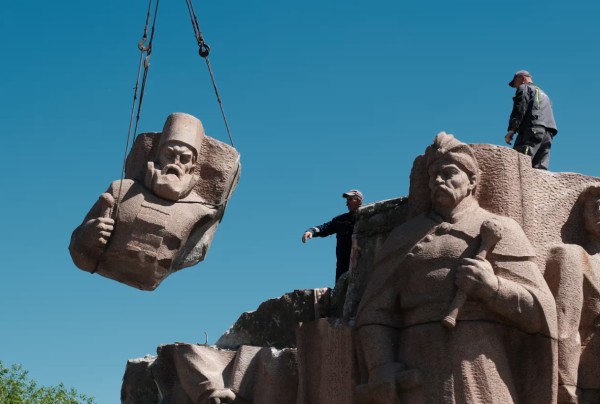
On June 19, 2003, operatives from the Prosecutor General’s Office came to the Moscow home of Alexei Pichugin, a mid-level security official at Yukos, one of Russia’s largest oil companies. The company’s chief executive, Mikhail Khodorkovsky, had earlier that year publicly accused Russian President Vladimir Putin of harboring corruption in his government; he had also been funding independent media, nongovernmental organizations and opposition parties. (Disclosure: Khodorkovsky is the founder of the Open Russia movement of which I am currently vice chairman)
Pichugin’s arrest marked the beginning of what would become known as the “Yukos Affair,” a well-coordinated campaign led from the highest levels of the Russian government that would destroy the country’s most successful private company. Its unruly executives would land in prison or in exile; its assets would be siphoned off in rigged auctions and transferred to a state oil conglomerate now directed and chaired, respectively, by Putin’s onetime KGB colleague Igor Sechin and former German chancellor Gerhard Schroeder. Courts in Britain, Switzerland, the Netherlands and other Western countries have concluded that the legal proceedings in the Yukos case were politically motivated.
Pichugin’s arrest was meant as a warning to Khodorkovsky to leave Russia. He did not — neither then nor after the arrest of his top lieutenant, Platon Lebedev, in July 2003. In October 2003, Khodorkovsky was himself arrested in an early-dawn FSB raid on his plane during a refueling stop in Novosibirsk. Khodorkovsky and Lebedev would spend more than a decade in detention, recognized by Amnesty International as prisoners of conscience. They were released, after sustained international pressure, around the time of the Sochi Olympics.
Pichugin remains incarcerated to this day, now recognized by the Memorial Human Rights Center as Russia’s longest-serving political prisoner. One would have to go back to Stalin’s time to find similarly long sentences. In late Soviet years even the most prominent dissidents, such as Mustafa Dzhemilev or Vladimir Bukovsky, spent less time in prison. Pichugin is no dissident. As his mother wrote in a letter to Putin, “[Alexei] is a very private person who had no intention of fighting anyone, let alone of engaging in politics. … My son is guilty because of one detail in his record: that he worked at Yukos.”
Officially, Pichugin was sentenced to life in prison for “organizing murders.” The key witnesses for the prosecution later recanted their testimony, saying that it was coerced by investigators on the promise of reductions in their own sentences. No actual evidence was offered at the trial. The European Court of Human Rights has twice ruled that the Russian authorities violated Pichugin’s presumption of innocence and his right to a fair trial. On both occasions, Russian courts left the sentence unchanged.
What prosecutors want from Pichugin is incriminating (false) evidence against Khodorkovsky and former Yukos vice president Leonid Nevzlin, both now living in exile. “For [fifteen] years and counting … Mr. Pichugin has held in his hands the key to his freedom: All he needs to do is bear false witness against me and other Yukos executives. Lie, and walk free,” Khodorkovsky wrote in a Dec. 2017 op-ed. “Every day, he wakes to that invitation. Every day, he refuses.”
So Pichugin remains incarcerated, now held at the maximum-security Black Dolphin penal colony in the Urals, only allowed to see his mother and sons twice a year through a glass window. He has never seen his grandchildren. Pierre Yves Le Borgn, a special rapporteur at the Parliamentary Assembly of the Council of Europe, referred to the treatment of Pichugin by the Russian authorities as “tantamount to moral torture.”
It was not only moral. Four weeks into his arrest, Pichugin was taken from his cell at Lefortovo Prison for an interrogation. When he was brought back, he did not seem his normal self. “He looked down and was unfocused,” recalled his cellmate, Igor Sutyagin. “He was not moving normally. It was as if his arms and legs were not bending.” It would take Pichugin several days to feel normal again after overcoming partial memory loss, headaches, and high blood pressure. He did not remember the interrogation, only the investigator offering him coffee. Presumably, a drug was used in an attempt to extract a confession. The attempt failed; to this day Pichugin refuses to admit guilt or incriminate his former superiors.
According to Memorial, the Russian government currently holds 155 political and religious prisoners. The real figure is higher: the organization uses the fairly restrictive criteria set out in Resolution 1900 (2012) of the Parliamentary Assembly of the Council of Europe to make its designations. But even the official number is comparable with the late Soviet period.
It is not just a number; behind it are real people with real lives, like that of Alexei Pichugin, forever changed by the Kremlin’s campaign to cement its political monopoly. “The prisoner’s worst nightmare is the thought of being forgotten,” wrote Irwin Cotler, former Canadian justice minister and a leading advocate for human rights. It is time for the international community to remember the forgotten and to demand justice for those who continue to be held captive in violation of the European Convention of Human Rights, to which Russia is a signatory, and of Russia’s own laws.


























